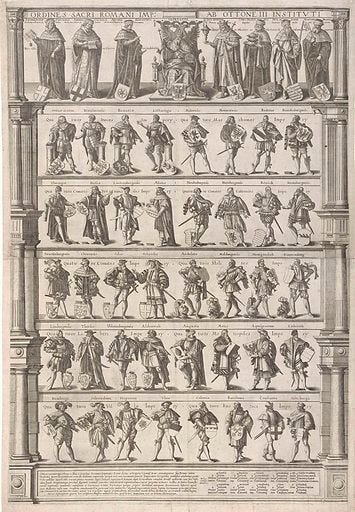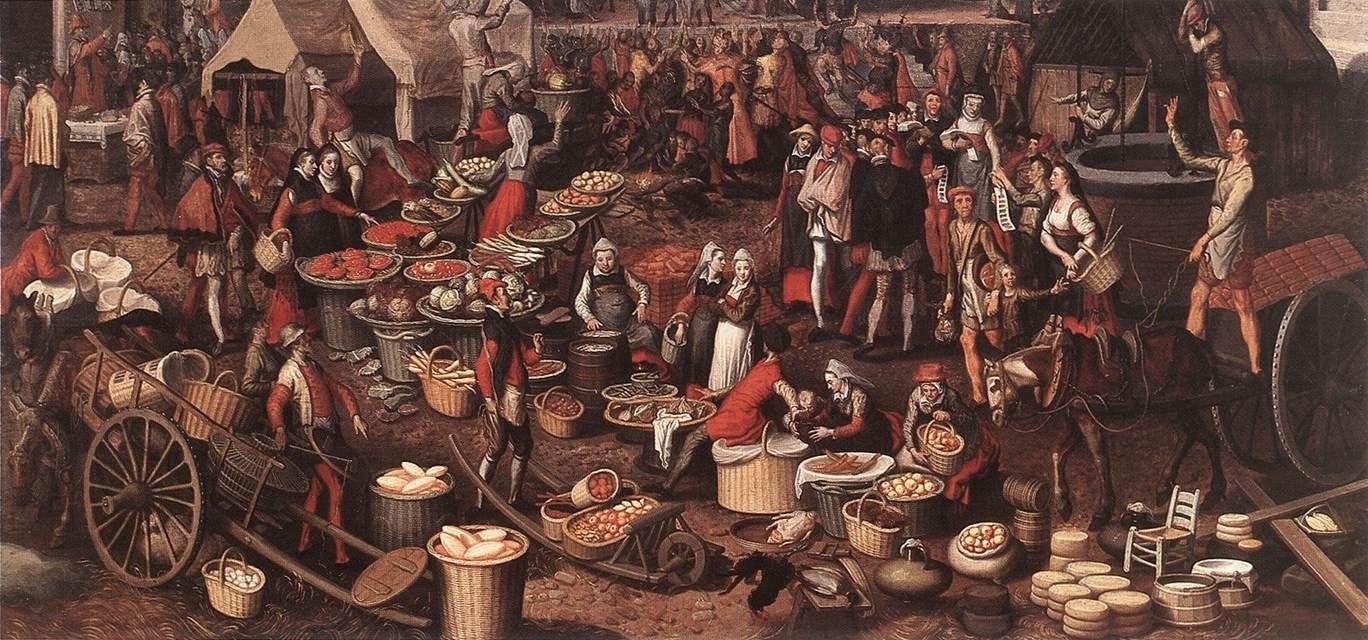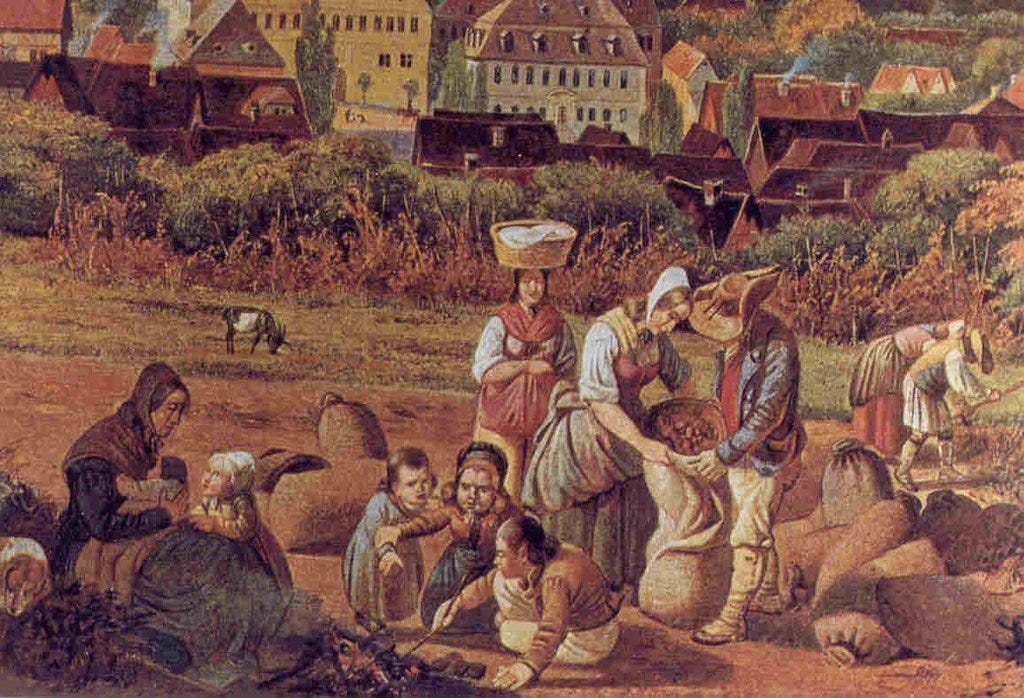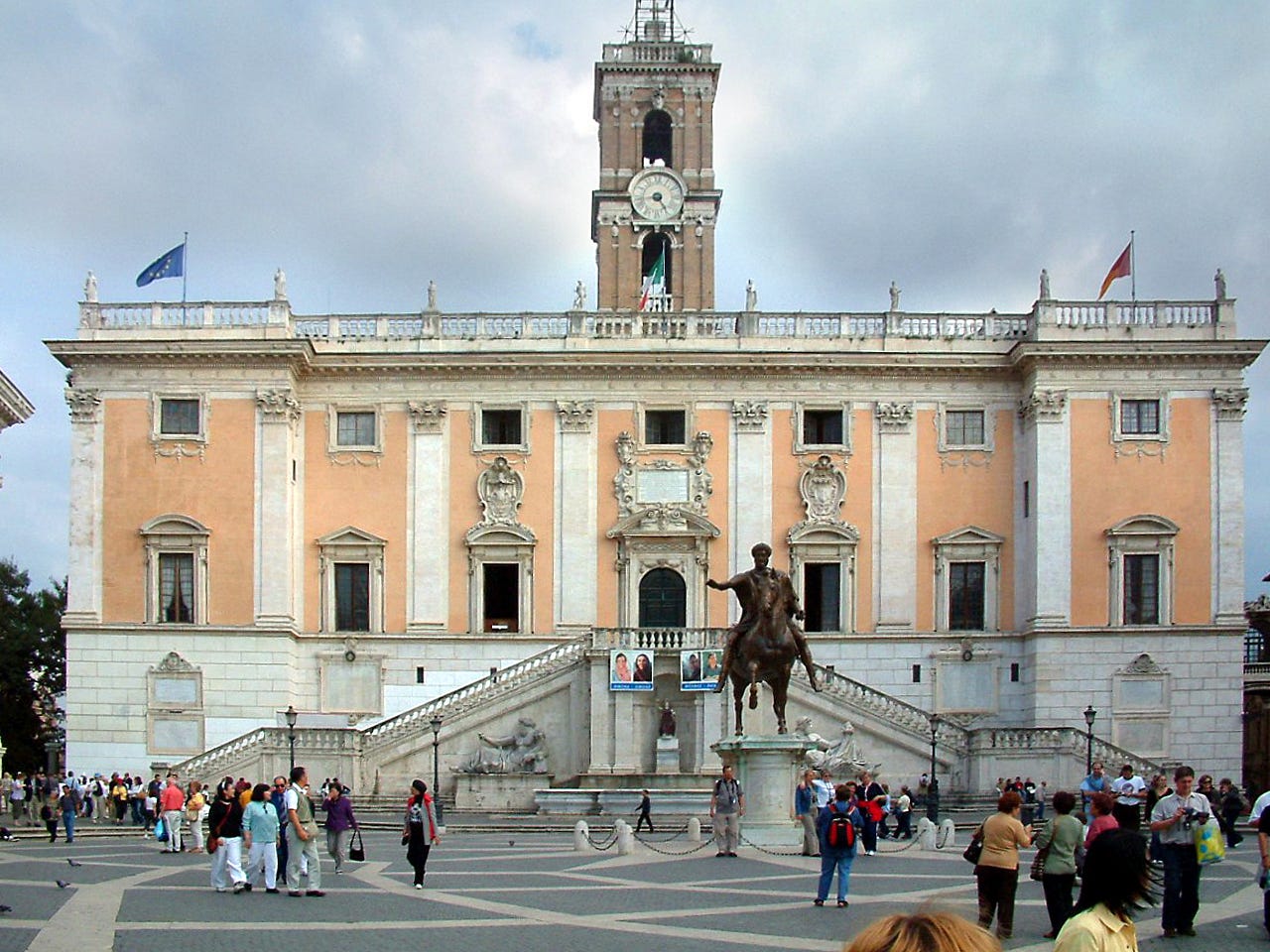The Holy Roman Empire was an incubator of Progress
It own dysfunctionality turned out to be its key benefit
The Holy Roman Empire was one of the weirdest political entities in European, and maybe world, history. It lasted for 1000 years (from 800 to 1806), but few historians consider it a great empire. The Holy Roman Empire dominated Central Europe geographically, but its Emperor was often dominated by his own subjects.
The Holy Roman Empire was simultaneously a continental power and a complete straw man. Voltaire famously quipped that it was "neither holy, nor Roman, nor an empire," and he had a good point.
Rather than an empire, the Holy Roman Empire was more of a loose collection of kingdoms, principalities, imperial cities, and ecclesiastical states that were constantly squabbling with each other. Most bizarrely, the Emperor was elected by its foremost citizens (called “Electors”), who invariably “voted” for the legitimate successor in the Habsburg dynasty. And, of course, the Habsburg Empire (which later became the Austrian Empire and after that Austria-Hungary) was half inside the Holy Roman Empire and half outside of it.

The Holy Roman Empire harkened back to the original Roman empire, but never came close to its predecessor. It sought to unite Christians, but after 1520, it was divided into Catholics and Protestants. It often clashed with the Pope in the Vatican.
Given all this, why should we care about the Holy Roman Empire?
We should care because the Holy Roman Empire was unintentionally a perfect incubator of Commercial societies. And it was Commercial societies that invented human material progress. The Holy Roman Empire was the perfect combination of:
Defense against external aggressors, which swallowed up so many potential Commercial cities in Spain, France, and southern Italy.
Internal liberty for medieval cities
For this reason, we should all be thankful that for the Holy Roman Empire.
This article is one article in my multi-part series on How progress spread across the globe:
How Progress Spread Across the Globe (podcast)
The Holy Roman Empire was an incubator of Progress (this article)
The following is an excerpt from my book From Poverty to Progress: Understanding Humanity’s Greatest Achievement. You can purchase discounted copies of my book at my website, or pay full prize at Amazon.
Incubator of Commercial Societies
When one looks at a map of Europe, it is striking how many of the Commercial societies were located on the periphery of the Holy Roman Empire. The Holy Roman Empire lasted for many centuries and covered Belgium, Netherlands, Northern Italy, and most of modern-day Germany. Just a few of the trade-based cities that were within the borders of the Holy Roman Empire were:
Venice (in modern-day Northern Italy)
Florence
Genoa
Bruges (in what was called “Flanders” and is now in Belgium)
Antwerp
Amsterdam (in the modern-day Netherlands)
Cologne (in modern-day Germany)
Nuremberg
Augsburg
Lubeck and
Hamburg
This is not a coincidence. Among the empires of Europe, the Holy Roman Empire was extraordinarily decentralized. It did not even deserve the title of “empire”.
The Emperor was elected, not inherited and many of the cities within its borders had very broad political and economic autonomy. Imperial cities, in particular, had so much autonomy that it was often a de facto independence. As long as they swore loyalty to the Emperor, they could do pretty much as they pleased. This meant that local merchant families, not kings or princes, were the de facto rulers of these cities and towns.
The outskirts of the Holy Roman Empire made perfect incubators for Commercial societies. The Holy Roman Empire ensured that local nobles, who swore loyalty to the Emperor, were not a military threat from within. The Holy Roman Empire also protected the cities from threats by rival Agrarian empires and barbarian attacks. But the Holy Roman Empire left them enough autonomy that they could focus on what they were good at: innovating and making money.
Modern-day Northern Italy, Belgium, and the Netherlands all fulfilled these conditions and each evolved into complex Commercial societies. These Commercial societies concentrated artisans, merchants, and other skilled workers into tight geographical proximity and gave them both the freedom and the incentive to use their talents.
Their need to import foodstuffs for survival created a strong incentive to their rural hinterlands to make local agriculture more efficient, which created a larger food surplus. Locals also had incentives to invest in improving the transportation network on both land and sea.
With relatively inclusive political and economic institutions, significantly less of this food surplus was extracted by elites, enabling incomes to grow. This created a virtuous cycle of innovation and growth that the world had never seen before to evolve.
Commercial societies could expand rapidly to other defensible coastal and riverine locations because they possessed complex nautical technologies. Because they had relatively small populations, however, they could rarely expand inland, particularly if that region was already inhabited by Agrarian societies.
Large volumes of trade and decentralized wealth enabled them to evolve inclusive political institutions. Rather than extractive institutions run for the benefit of a small political and economic elite, Commercial societies had decentralized institutions run for the benefit of a much larger segment of society (although rarely a majority).
Commercial societies, however, were terribly vulnerable to conquest from their far larger Agrarian neighbors. Though citizen militias and strong navies enabled them to hold out for centuries, the predatory Agrarian empires conquered many fledgling Commercial societies. Only those that were located on the fringes of the Holy Roman Empire tended to survive.
Most of the above was an excerpt from my book From Poverty to Progress: Understanding Humanity’s Greatest Achievement. You can purchase discounted copies of my book at my website, or pay full prize at Amazon.
This article is one article in my multi-part series on How progress spread across the globe:
Breakthroughs that spread Progress throughout the globe (intro article).
Why Commercial societies are the most important type of society that you have never heard of
The Holy Roman Empire was an incubator of Progress (this article)
How the Industrial Revolution upset the military balance of power
How Progress shaped the Great Power conflicts of the 20th Century










I enjoyed this. The HRE doesn't receive many apologias. I can't pretend to be an expert on it, but I recall noticing a long time ago that despite its alleged utter dysfunction, it was at least functional at resisting external aggression for a very long time. I guess the Reformation would be when that started to fall apart, but even then, it's noteworthy that France wasn't ever really able to dominate or peel away parts of Germany until Napoleon and his Confederation of the Rhine.
My sense of the power politics of the HRE -- without knowing if the details affirm this -- is that the Emperors would naturally be incentivized to encourage the establishment of Free Imperial Cities. Even if he didn't have much control over them, neither did his most powerful feudal vassals, and the natural antagonism between those two groups would help him to secure his own hold on power by playing them against each other.